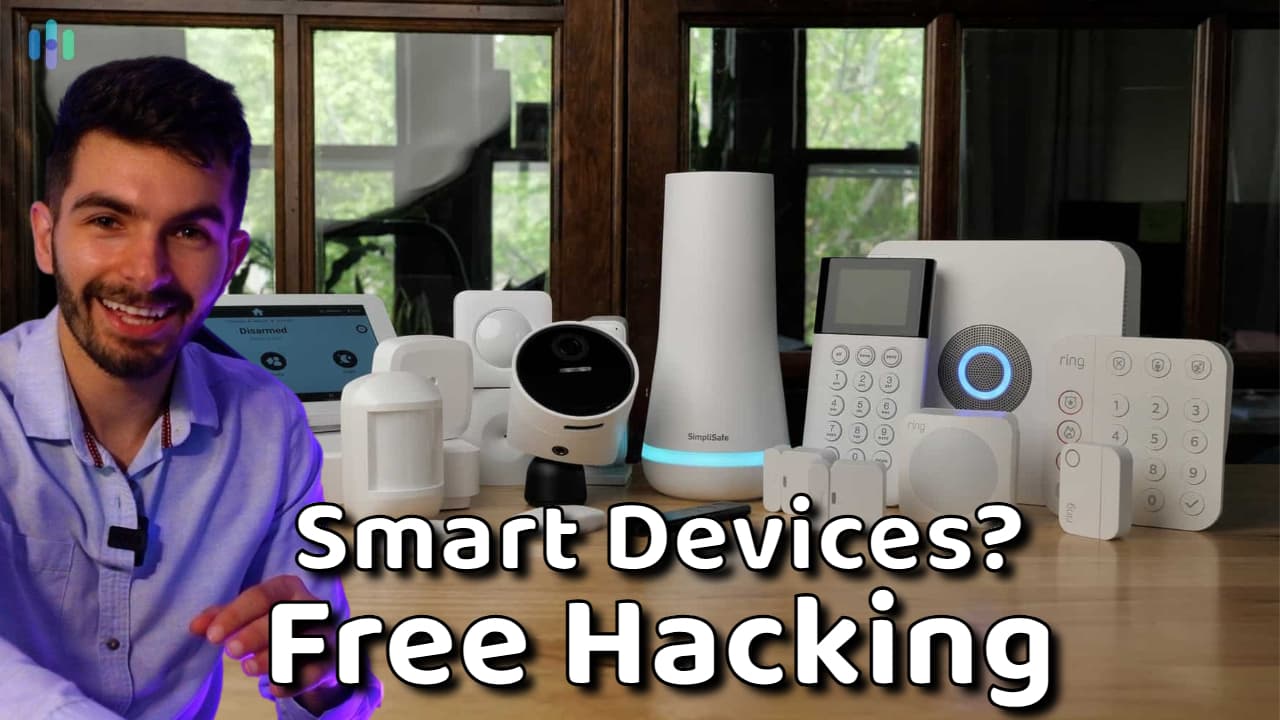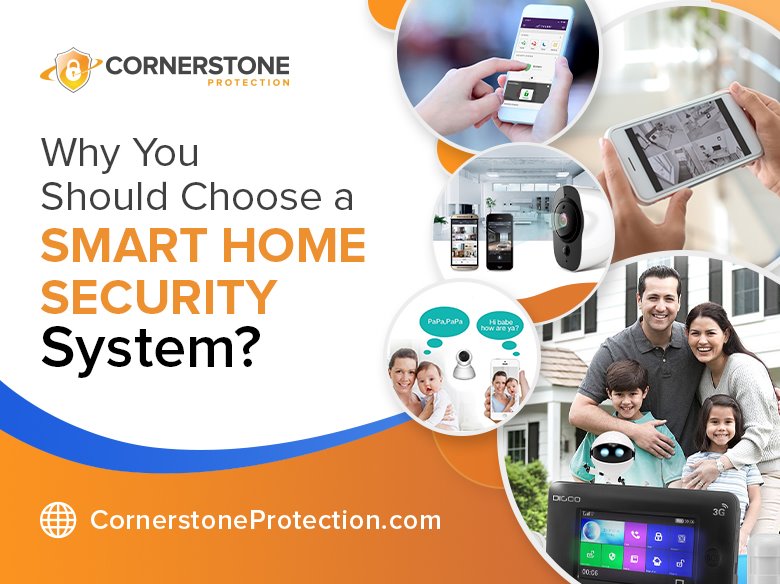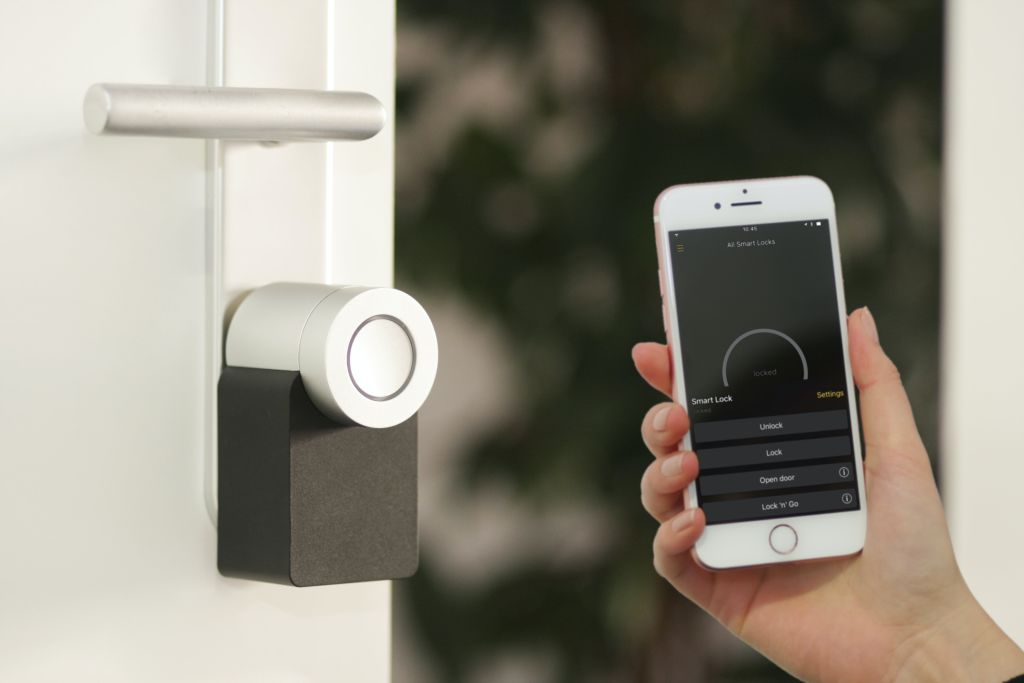Protecting Your Home in the Era of Smart Devices: Expert Advice
What is Smart Device and IoT
In today’s digital era, the terms “smart device” and “Internet of Things” (IoT) are frequently mentioned in discussions about the future of technology.
A smart device refers to any electronic gadget that connects to the internet, allowing it to send and receive data. This connectivity enables these devices to interact not only with users but, crucially, with each other.
The Internet of Things, on the other hand, encompasses a vast network of these interconnected devices. Imagine your refrigerator sending you a notification when you’re low on milk, or your thermostat adjusting the temperature based on your daily routine.
This interconnected web of devices optimizes efficiency and enhances convenience in our daily lives.

Overview of Smart Devices in Homes
When we talk about smart devices in homes, we often think of common items that have been transformed through technology, such as but not limited to:
- Smart Speakers: Devices like Amazon Echo and Google Home that respond to voice commands.
- Smart Thermostats: For example, the Nest Thermostat learns user preferences and helps reduce energy consumption.
- Smart Security Cameras: These cameras allow homeowners to monitor their properties remotely.
Overall, the proliferation of smart devices is reshaping our living environments, enabling unprecedented levels of convenience and control. As we delve deeper into this topic, it is vital to understand the associated risks and how to mitigate them effectively.

Risks Associated with Smart Home Devices
Privacy Concerns
While the convenience of smart home devices is undeniable, privacy concerns frequently accompany their benefits. These devices often collect vast amounts of personal data, including daily routines, preferences, and even conversations. Imagine a smart speaker accidentally capturing sensitive discussions; this information could be vulnerable to unauthorized access. Consider these privacy implications:
- Data Collection: Smart devices track user habits and preferences to enhance functionality. However, this creates a trove of data that could be exploited.
- Third-Party Sharing: Many manufacturers share data with third-party companies, often without explicit user consent.
Potential Security Vulnerabilities
In addition to privacy concerns, smart home devices can present significant security vulnerabilities. Cybercriminals continually seek ways to exploit weaknesses in these systems:
- Weak Passwords: Many users neglect to change default passwords, making devices an easy target.
- Outdated Firmware: Failure to update software can leave devices susceptible to the latest security threats.
A personal friend of mine experienced a breach when their smart camera was hacked, resulting in unwarranted intrusion into their home security. This incident underscores the critical need for users to understand the associated risks of integrating smart technology into their lives. As we explore further, it becomes essential to focus on how to secure these devices effectively.

Importance of Securing Smart Home Devices
Protecting Personal Data
Given the privacy concerns and security vulnerabilities associated with smart home devices, securing them has become a crucial necessity. Personal data, including your daily activities, preferences, and even sensitive information, can be at risk if these devices are not adequately protected. When my neighbor upgraded to a smart thermostat, she was surprised to learn it tracked her energy usage and provided detailed reports. While this helped in managing her bills, it also meant sensitive information about her daily routine was being collected. To safeguard such data, consider implementing the following practices:
- Encryption: Ensure that your devices use encryption to protect data transmission.
- Data Minimization: Limit the amount of data shared with devices to reduce potential exposure.
Preventing Unauthorized Access
Equally important is the prevention of unauthorized access to your smart home network. A compromised device can lead to unwelcome intrusions, both physically and digitally. To curb such risks, here are essential strategies to consider:
- Network Segmentation: Isolate your smart devices on a separate network to protect your primary devices.
- Multi-Factor Authentication (MFA): Use MFA for accounts linked to your smart devices, enhancing overall security.
These proactive measures can significantly lower the chances of unauthorized access, providing peace of mind in a rapidly evolving digital landscape. As we move on, let’s explore expert tips for securing your smart devices effectively.

Expert Tips for Securing Smart Devices
Using Strong Passwords
Having established the importance of securing smart home devices, let’s delve into some expert tips to enhance your defenses. One of the most fundamental steps is using strong passwords. A simple “123456” or “password” is unfortunately still too common! When setting passwords, consider the following guidelines:
- Length and Complexity: Aim for at least 12 characters, incorporating numbers, symbols, and both uppercase and lowercase letters.
- Unique Passwords: Avoid reusing passwords across different devices or accounts. Each device should have a distinct password to minimize vulnerability.
A friend of mine recently faced a breach due to a weak password on their smart doorbell. This incident serves as a vivid reminder of the critical nature of password security.
Keeping Software Updated
Another vital practice is keeping device software updated. Manufacturers release updates to address security vulnerabilities, enhance features, and improve performance.
- Automatic Updates: Enable automatic software updates whenever possible, ensuring you’re always protected against known threats.
Ignoring updates can leave your devices exposed to cyberattacks, so performing routine checks is crucial.
Implementing Network Security Measures
Lastly, implementing robust network security measures can drastically reduce the likelihood of unauthorized access. Here are effective strategies to consider:
- Change Default Settings: Modify default usernames and passwords for your router and devices.
- Use a Guest Network: Allow visitors access to the internet without compromising your primary network by setting up a guest Wi-Fi network.
Adopting these adjustments can substantially bolster your smart home security. With these tips in hand, it’s time to consider the security features provided by popular smart home devices and how they can further protect your home.

Security Features of Popular Smart Home Devices
Comparison of Security Features
With the groundwork laid for securing smart devices, it’s beneficial to understand the security features offered by popular devices on the market. Different manufacturers incorporate varying security protocols to protect user data and network integrity. For instance, comparing a few common devices reveals interesting insights:
- Smart Cameras (e.g., Ring vs. Arlo):
- Encryption: Both devices use end-to-end encryption, but Arlo also offers customizable privacy zones.
- Two-Factor Authentication: Arlo offers this feature, while Ring has made it optional.
- Smart Thermostats (e.g., Nest vs. Ecobee):
- User Authentication: Nest requires a strong password and supports MFA; Ecobee has similar requirements.
- Software Updates: Both brands provide regular software updates, but Nest boasts a more streamlined process.
This comparison highlights how crucial it is to choose devices with robust security features tailored to your needs.
Recommendations for Secure Devices
Based on these comparisons, here are some recommendations for secure smart home devices: (This is Based on my research online, they are not sponsored or affiliate)
- Nest Cam: Known for its strong encryption and user-friendly interface.
- Ecobee Smart Thermostat: Offers privacy-conscious features and robust security options.
- August Smart Lock: Provides excellent security with features like temporary access codes.
By selecting devices that prioritize security, users can create a safer smart home environment. As we proceed, it’s essential to learn about responding effectively to potential security breaches, ensuring that homeowners remain vigilant and prepared.

Responding to Security Breaches
Recognizing Signs of a Breach
Even with robust security measures, there’s always the possibility of a security breach occurring. Recognizing the signs early can make a significant difference in mitigating damage. Here are some common indicators you might notice:
- Unusual Device Behavior: If your smart camera starts recording without prompts or your thermostat changes settings unexpectedly, something might be amiss.
- Unexpected Account Activity: Any unrecognized logins or changes in your device settings should raise immediate red flags.
- Strange Notifications or Alerts: Receiving unusual alerts from your devices, like failed login attempts or alerts from unfamiliar IP addresses, can suggest unauthorized access.
A neighbor of mine once received alerts from their smart security system even when no one was home, hinting that something suspicious was occurring.
Steps to Take After a Breach
If you suspect a breach, acting swiftly is key to protecting your smart home. Here are steps to consider:
- Change Passwords Immediately: Update passwords for any affected devices and related accounts.
- Disconnect Compromised Devices: Temporarily disconnect any device that you suspect has been breached to prevent further intrusion.
- Check Device Settings: Look for any unauthorized changes and restore your settings if necessary.
- Run Security Software: Utilize antivirus software to scan for potential malware or vulnerabilities.
By being vigilant and knowing how to respond effectively, homeowners can significantly reduce the risks associated with security breaches. As we look ahead, understanding future trends in smart home security will further empower users to protect their digital lives.
Future Trends in Smart Home Security
Advancements in Security Technology
As the world of smart home devices continues to grow, so too does the technology ensuring their security. Recent advancements are focused on enhancing protection and user confidence. Some notable developments include:
- Artificial Intelligence (AI): AI is playing a crucial role in detecting unusual behavior, learning from patterns to identify potential security threats that traditional systems might overlook.
- Biometric Authentication: Devices are beginning to integrate biometric features, such as facial recognition and fingerprint scanning, making unauthorized access considerably more challenging.
- Advanced Encryption Standards: Manufacturers are increasingly adopting stringent encryption methods to protect data transmission, reducing the risk of interception.
These innovations promise to create a more secure environment for users.
Predictions for the Future of Smart Home Security
Looking ahead, we can anticipate several trends in smart home security that will shape homeowner experiences:
- Greater Integration with IoT devices: Seamless communication between devices will allow for real-time threat detection and automated responses.
- Augmented Reality (AR) in Security Monitoring: AR could revolutionize how users interact with their security systems, offering immersive monitoring experiences.
- Increased Consumer Awareness: As breaches become more publicized, consumers will demand higher levels of security and transparency from manufacturers.
By embracing these trends, homeowners can look forward to a safer, more secure future for their smart living spaces. As we round up our exploration of smart home security, it’s essential to keep these advancements in mind for ongoing protection.

Conclusion
Recap of Key Points
Reflecting on the journey through smart home security, we’ve explored the significant benefits of integrating smart devices into our lives while recognizing the associated risks. From privacy concerns and potential security vulnerabilities to the essential practices needed to safeguard our information, it’s clear that awareness is fundamental. Key takeaways include:
- Understanding the importance of using strong, unique passwords.
- Keeping software updated to mitigate vulnerabilities.
- Recognizing the signs of a breach and knowing how to respond effectively.
These elements collectively contribute to a stronger defense against potential threats.
Final Recommendations
As users navigate the evolving landscape of smart home technology, implementing protective measures becomes vital. Here are a few final recommendations:
- Choose Devices Wisely: Opt for smart devices with strong security features and a good reputation for regular updates.
- Stay Informed: Continuously educate yourself about emerging threats and security practices to stay ahead.
- Utilize Community Resources: Engage with online forums and local groups to share experiences and learn from others.
By following these guidelines, homeowners can not only enjoy the convenience of smart technologies but also establish a safer living environment for themselves and their families. Embracing these practices today ensures greater peace of mind for the smart homes of tomorrow.
This article is written by Fady Azzi
Fady Azzi is a Cyber Security expert, based in Sydney, Australia. Through quick and short videos full of interesting and trusted information, Fady’s channel aims to inform and educate people of all ages about cyber security, hacking, technology and many interesting topics.

0 Comments